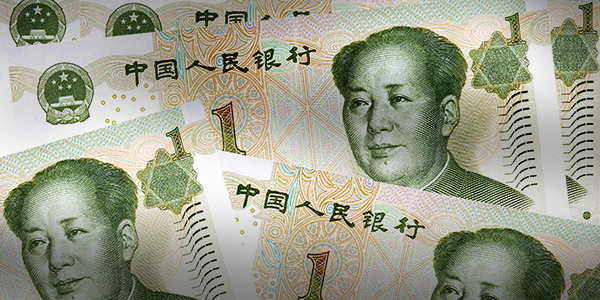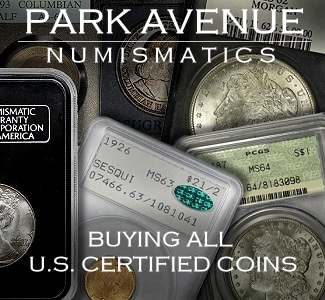
By Joshua McMorrow-Hernandez for Coinweek …….
The Chinese one-yuan note is about to fold as the new one-yuan coin replaces the paper currency. Many hail the replacement of the one-yuan note, as coins last longer in circulation than paper currency and are thus less expensive to produce over time. But others are concerned that producing more one-yuan ($0.15 USD) coins may compound a problem already mounting in China – an overabundance of small-denomination coinage that can’t be recycled easily. Others anticipate bulkier wallets and purses, and prefer light paper currency to heavy coins.
In addition to one-yuan paper currency, fractional banknotes are also used in China, with smaller denominations such as the 5 Jiao (half yuan) and 1 Jiao (one-tenth of a yuan, equivalent to the United States dime) still in circulation. These small notes are also being replaced by equivalent coins.
A trial phase-out is underway in five cities throughout the Shandong province in eastern China, as well as several other provinces in southern China. Chen Yulu, deputy governor of the People’s Bank of China believes coins are more sanitary than paper currency because metallic money can be cleaned. He also says coins have a longer lifespan than paper money, and that eliminating small paper currency will help save trees.
While coins may be cleaner, cheaper to produce and more environmentally friendly than paper currency, there’s no guarantee that the people will accept them, let alone banks – many of which refuse to take large quantities of the small-denomination Chinese coins. This is not unlike the situation in the United States, where some banks discourage use of coins by imposing fees upon transactions involving large amounts of coinage. Unlike most American financial institutions, however, many Chinese banks lack automatic coin counting machines, placing the onus on tellers to spend long periods of time manually counting large quantities of coins.
Public reception to the new coin initiative in China is mixed, but the move is not without international precedent. Many countries are replacing their low-denomination paper currency with coinage. Aside from China, which is only now fully replacing its one-yuan note with a coin, the United States is one of the last nations on Earth that still issues a paper currency version of its lowest unitary denomination (the one-dollar bill).
Meanwhile, Canada phased out its one-dollar bill in 1989, while Great Britain introduced the one-pound coin in 1983 to replace the one-pound note. One year later in 1984, Australia printed its last dollar bill, which was also replaced by a coin.
Though many government entities opt for the elimination of low-denomination paper currency in favor of equivalent coins, those who prefer the convenience of paper bills and individuals advocating for the longer-lasting coin option may find a compromise in polymer currency. This so-called plastic currency is made from biaxially-oriented polypropylene polymer (BOPP) and are not only lightweight, but it can also accommodate security features that traditional “paper” currency (usually a blend of cloth fibers and paper) cannot, such as metameric ink.
Several nations have already adopted polymer notes, including New Zealand, Australia, Romania, and Canada. Great Britain, meanwhile, will begin introducing polymer banknotes in September 2016.




